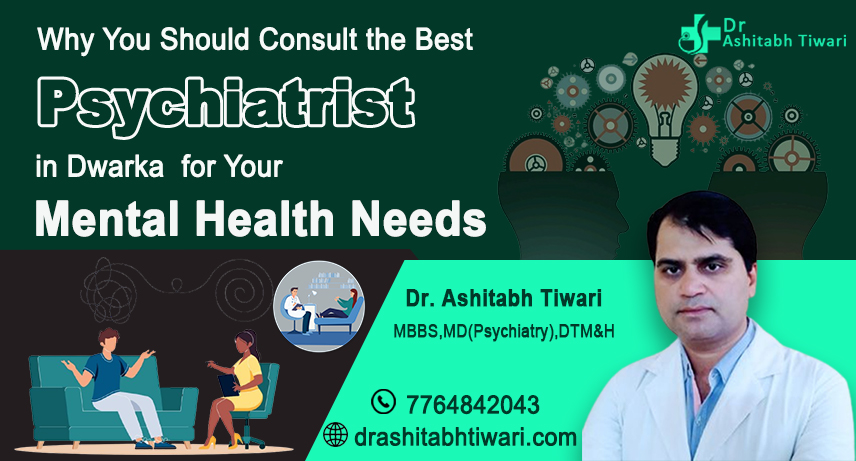
Mental health is an essential aspect of our overall well-being. It affects how we think, feel, and act, and it can have a significant impact on our daily lives. Poor mental health can lead to a range of problems, from difficulty in personal relationships to difficulties in professional life. Fortunately, there are several ways to prevent mental health issues, and a psychiatrist can help you find the best way to maintain mental health.
Here are some tips from the best psychiatrist in Delhi on how to prevent mental health issues:
Practice Good Self-Care
One of the most important ways to prevent mental health problems is to practice good self-care. This means taking care of your physical, emotional, and mental health. Eating a healthy diet, getting enough sleep, and exercising regularly can help you feel better physically and emotionally. Taking time to relax, meditate, or do other activities that you enjoy can also help improve your mental health.
Manage Stress
Stress is a common trigger for mental health problems, so managing stress is essential. One of the best ways to manage stress is to identify the things that cause you stress and find ways to avoid or manage them. This might involve setting boundaries, delegating tasks, or learning relaxation techniques such as deep breathing or meditation.
Build Strong Relationships
Having strong relationships with family and friends can help prevent mental health problems. Social support is essential for maintaining good mental health, so it's important to build strong relationships with people who care about you. Make time to connect with friends and family regularly, whether it's through phone calls, text messages, or in-person visits.
Seek Professional Help
If you're experiencing mental health problems, it's essential to seek professional help. A best psychiatrist can help diagnose and treat mental health issues, provide therapy, and prescribe medication if necessary. They can also help you develop coping strategies to manage stress and improve your mental health.
Take Breaks
It's essential to take breaks from work and other responsibilities to prevent burnout and mental health issues. Taking time off can help you recharge and relax, which can improve your mental health. Whether it's a vacation or just a day off, make sure to take time for yourself.
Avoid Substance Abuse
Substance abuse is a common cause of mental health problems, so it's important to avoid alcohol and drugs. If you're struggling with substance abuse, seeking professional help is essential. A psychiatrist can help you overcome addiction and develop healthy coping strategies.
Stay Active
Exercise is an essential part of maintaining good mental health. Regular exercise can help reduce stress, improve mood, and boost self-esteem. Aim for at least 30 minutes of exercise most days of the week.
Practice Gratitude
Gratitude is a powerful tool for improving mental health. Focusing on the things that you're grateful for can help improve your mood and reduce stress. You can practice gratitude by writing down things that you're grateful for each day, expressing gratitude to others, or simply taking a moment to appreciate the good things in your life.
Learn to Say No
Setting boundaries and learning to say no is essential for maintaining good mental health. It's important to prioritize your own needs and well-being, and sometimes that means saying no to requests or responsibilities that are too much to handle. Learning to say no can be difficult, but it's an essential skill for preventing burnout and mental health issues.
Get Enough Sleep
Sleep is essential for good mental health. Getting enough sleep can help improve mood, reduce stress, and improve cognitive function. Aim for at least 7-8 hours of sleep per night, and establish a regular sleep routine to help improve sleep quality.
 Looking for the Psychiatrist in Rajinder Nagar, Delhi? Find the Best Here!
Looking for the Psychiatrist in Rajinder Nagar, Delhi? Find the Best Here!
 Best Psychiatrist Doctor in Dwarka for Anxiety and Depression Treatment
Best Psychiatrist Doctor in Dwarka for Anxiety and Depression Treatment
 Looking for the Best Psychiatry in Janakpuri? Here's What You Need to Know!
Looking for the Best Psychiatry in Janakpuri? Here's What You Need to Know!
 Why You Should Consult the Best Psychiatrist in Dwarka for Your Mental Health Needs
Why You Should Consult the Best Psychiatrist in Dwarka for Your Mental Health Needs
Copyright @ Dr. Ashitabh Tiwari Designed By Persistent Infotech